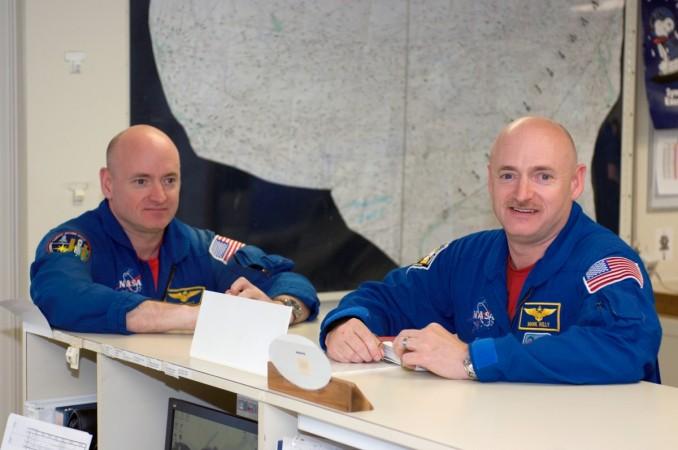
Identical twins, Scott and Mark Kelly, who are also NASA astronauts, will be participating in a brave new experiment of the space agency, which will involve one of them spending a year on space investigating, while the other will remain back on Earth. The news was announced on Wednesday 29 May 2014.
Early next spring, Scott will be aboard the International Space station (ISS), while Mark will receive the medical tests during the entire period of Scott's space mission. The experiment will enable researchers to understand the prolonged weightlessness effects on humans and since Mark and Scott are identical twins, there is a possibility that their bodies will provide an accurate result. The experiment will be a record for the longest time spent in space by an American. As Mark is a retired astronaut, Scott will travel to the space.
Scott has also volunteered to get his spinal taps done while he is in the orbit, in order to search for new medical ground in relation to humans in space. He will be connected with pressure sensor that will be installed into his skull, which will enable the researchers to study effects of visionary impairment suffered by those who undergo long-term space mission.
"As a test pilot, I like to push the envelope on things and, in this case, I feel like I'm maybe trying to push the envelope on data collection as well. No second thoughts - I'm actually getting kind of excited about the whole idea as we get closer." said Scott, according to SF Gate.
In 2010, Scott spent five months on board the space station, so the new mission to the space is nothing new to him.
For the next spring medical mission, NASA has selected ten study proposals on topics that include immune system, reaction time, gut bacteria, hardening of arteries, DNA and RNA molecular science, which are some of the proposed topics of investigation. NASA is expected to provide $1.5 million for the entire course of investigation.
Apart from this mission, NASA is planning to execute Mars and nearby asteroid missions that are likely to start in 2030.
















